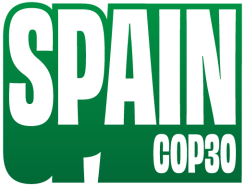Para seguir en directo a través de Youtube, X (Twitter) y LinkedIn - disponible en inglés.
Local Time
Timezone: Europe/Madrid
Date: Nov 15 2025
Time: 15:30 - 16:30
The factors underpinning the functioning of global supply chains of clean technologies are quickly changing. While cost-related parameters used to determine almost exclusively the location of manufacturing capabilities and exchange of clean tech components, a new paradigm of global trade and industrial policy is emerging.
Objectives
Analyse the changing dynamics of global supply chains in clean technologies, identifying the factors driving the shift from cost-based models to strategies influenced by security, resilience, and geopolitical considerations.
Examine the implications of new industrial and trade policies on global cooperation, innovation, and the pace of clean technology deployment, especially in developing countries.
Identify strategies to balance national interests and global interdependence, exploring how countries can reduce excessive dependencies without resorting to protectionism or new trade barriers.
Highlight successful examples of international cooperation and partnerships that demonstrate how shared innovation, technology transfer, and mutual benefit can accelerate the global energy transition.
Promote a vision for a resilient and cooperative global clean tech ecosystem, where diversification, collaboration, and sustainability reinforce one another to ensure the success of the energy transition worldwide.
Moderator
Fernando Rejón, Energy and Climate Policy Advisor at the Ministry of the Ecological Transition of Spain
Speakers
Miguel Rodrigo. Director of Spain’s Energy Agency
Justine Garrett. Acting Multilateral Climate Engagement Manager at the IEA
Phil Cole. Director of Industrial Affairs at Wind Europe
Rana Ghoneim. Director at the Division of Energy and Climate Action at United Nations Industrial Development Organization (UNIDO)





